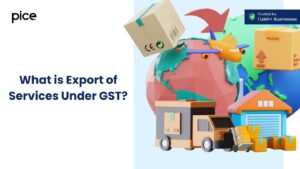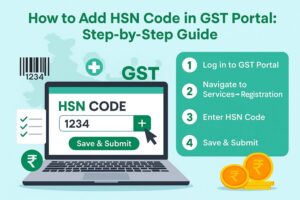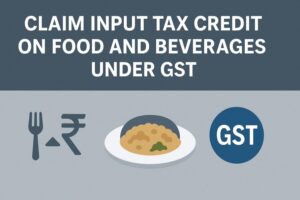All You Need to Know About GST on Second Hand Cars
- 3 Sep 24
- 8 mins

All You Need to Know About GST on Second Hand Cars
Key Takeaways
- GST on Used Cars: Registered dealers pay GST on the profit margin, with rates varying by engine capacity.
- Unregistered Sellers: They are exempt from charging GST on second-hand car sales.
- Car Parts Tax: Used car parts are taxed at a 28% GST rate, depending on the part.
- Increased Compliance: GST requires used car dealers to maintain detailed records and file regular returns.
- Price Impact: GST has raised used car prices from registered dealers, affecting buyer choices.
The Goods and Services Tax (GST) is one of the types of indirect taxes that apply to used cars in the second-hand market. The applicable GST on second-hand cars varies significantly based on the type of vehicle and the capacity of the engine.
This blog elaborates on the details related to GST on second-hand cars for you. Learn about the GST rates, impact on registered and unregistered used car dealers and GST on the sale of used vehicle parts here in detail.
GST on Used Cars
The tax on the sale of used cars amounts to 12% of the value of the transaction. Every used car dealer has to pay a 12% tax on the sale of each vehicle. Further, GST applies to the profit or margin of the used car dealer. As a result, the dealer has to calculate GST on the value of the transaction minus the purchase price.
For instance, if a used car dealer bought a car for ₹5 lakh and sold it for ₹6 lakh, the GST applies to the profit of ₹1 lakh that the dealer earns. Here are the applicable GST rates for different petrol and diesel cars:
| Type of Car | Engine Capacity | GST Rate | Compensation Cess | Total Applicable Cess |
| Petrol Car | Up to 1200 cc | 12% | Nil | 12% |
| Petrol Car | Over 1200 cc | 18% | Nil | 18% |
| Diesel Car | Up to 1500 cc | 12% | Nil | 12% |
| Diesel Car | Over 1500 cc | 18% | Nil | 18% |
GST Rate Based on Types of Used Cars
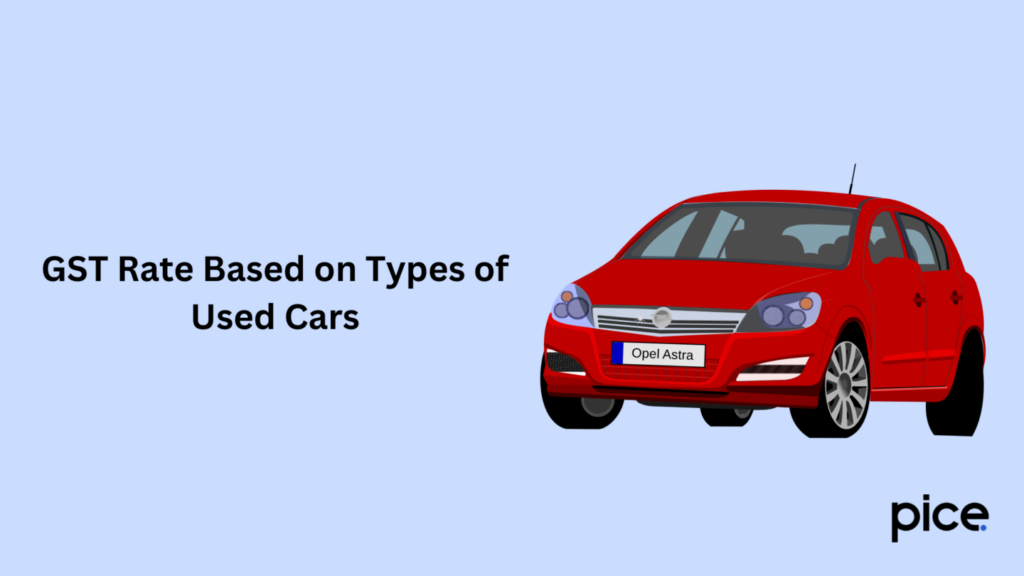
The tax rate on used car purchases varies based on the type and engine capacity of the car. Presently, the GST structure on used cars aligns with buyers' understanding of the tax implications.
Let us find out more about the applicable GST on second-hand cars or used cars, depending upon the type of dealer:
GST on Sale of Second-Hand Car by Unregistered Dealer
If an unregistered person or dealer sells a second-hand car, it is deemed a GST-exempt transaction. Thus, the unregistered seller does not have to charge GST on the sale of used cars.
GST on Sale of Second-Hand Car by Registered Dealer
If a registered person or dealer sells a second-hand car, it is considered a part of procuring and regular business for the dealer, thereby treating it as the supply of goods under GST. As a result, the seller has to charge tax on sale of the second-hand vehicles.
GST on the Sale of Used Car Parts
Different GST rates apply to the parts and accessories that used car dealers sell. The GST rate on auto parts is 28% at present. However, the GST rate varies based on the accessory and part of the used car that the dealer sells.
Implications of GST for Used Car Dealers
There have been significant changes in used car dealership businesses with the introduction of GST. Let us understand some of these changes:
- Increased Compliance Requirements: Used car dealers need to register under GST. This implies that used car dealers need to file regular GST returns, maintain books of accounts and undergo GST audits.
- Better Transparency: The introduction of GST has improved transparency in the taxation system for dealers as they can claim input tax credit (ITC) for the GST paid on purchases. ITC allows dealers to reduce their tax burden by allowing them to pay output tax liability at a reduced rate.
- Improved Supply Chain Management: The logistics and transportation costs have decreased with the introduction of GST improving supply chain management. Interstate transportation has further improved with cost-effectiveness, efficiency and accelerated pace.
Valuation of Old or Used Car for GST Calculation
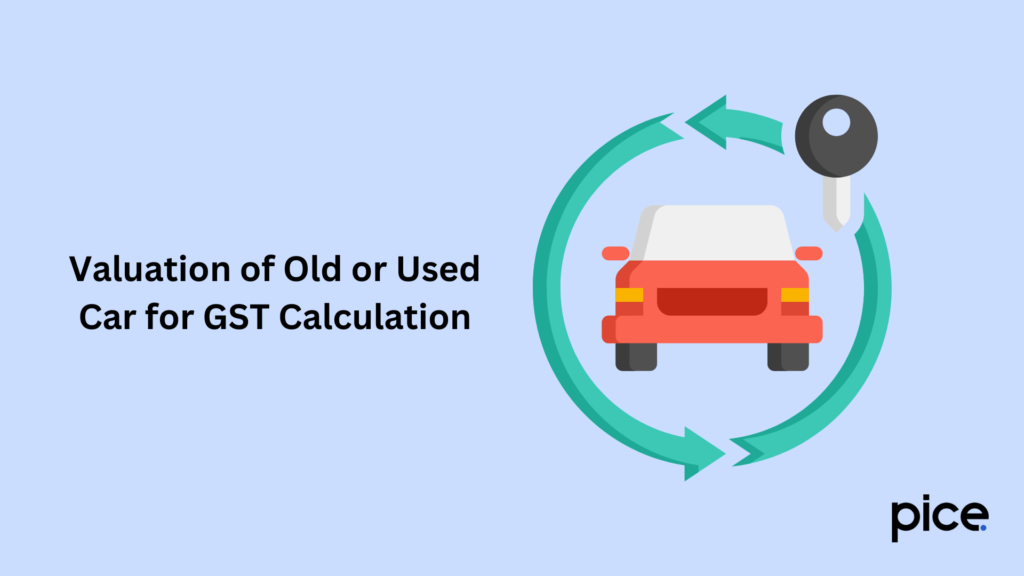
The value of old or used cars for GST calculation depends on the margin of supply. Here are the details in different cases:
- In Case Depreciation Under the Income Tax Act Availed:
The margin of supply will be the difference between sale consideration and written-down value. Further, you need to calculate the tax on this margin. In case the margin is negative, it will be as per the Income Tax Act. Income tax necessitates the calculation of depreciation on asset blocks. However, for the GST purpose, it is applied for the specific motor vehicle.
- In Other Case:
In the other cases, the margin is the difference between the purchase price and the sale price. Tax needs to be calculated on this margin. However, you need to ignore it when the margin is negative.
You do not need to consider the negative value in calculating valuations as exempt non-GST supply. As a result, there is no need for input tax credit (ITC) reversal under Rule 42 or Rule 43 of CGST Rules, 2017.
In case a person deals with buying and selling used vehicles, he or she needs to consider Rule 32(5) of CGST Rules, 2017. Dealers can thus supply goods after minor processing which retains the nature of goods. Further, in the case where you have not claimed input tax credit on the purchase of such goods, GST will apply to the difference between sale price and purchase price.
- Sale of Used Vehicles Supplied by Government:
In the case where the Central Government, State Government, Union Territory or local authority supplies used vehicles, the registered person receiving the supply needs to pay taxes under the reverse charge mechanism.
On the other hand, if the government supplies a used vehicle to an unregistered person then the respective central government department or the department of state government, union territory or local authority should obtain GST registration and pay the applicable tax.
Does GST Affect the Second-Hand Car Market?
The introduction of GST has significantly impacted the second-hand car market. It affected the used car prices and how people buy and sell them. Both dealers and buyers now think more about making financial decisions about used cars after the introduction of GST.
The changes are evident when you look at registered dealers. Inclusion of GST results in a higher price of used cars for buyers which changes the overall cost of buying the car. As a result, buyers can consider loans to purchase used cars and affordable options for vehicles under ₹1 lakh, thereby reducing the overall price of used cars for purchases.
Applicability of GST on Sale of Used Car
The applicability of GST varies based on the status of the seller. An unregistered seller will not have to charge GST while a registered seller will have to charge GST for the sale of used cars in the second-hand market.
Conclusion
By understanding the applicable GST on second-hand cars, you can ensure payment of tax for your next car purchase. It is to note that the cost of purchasing second-hand cars may increase with the inclusion of GST. As a dealer, you can claim input tax credit on the purchase of used cars to reduce your tax liability in your business furtherance.
💡If you want to pay your GST with Credit Card, then download Pice Business Payment App. Pice is the one stop app for paying all your business expenses.
 By
By 






